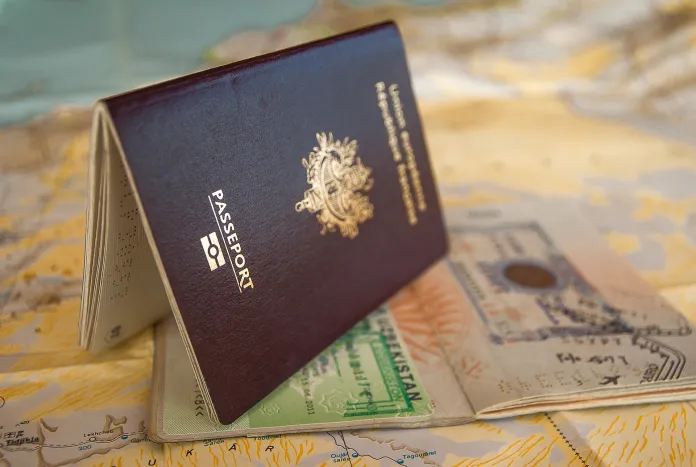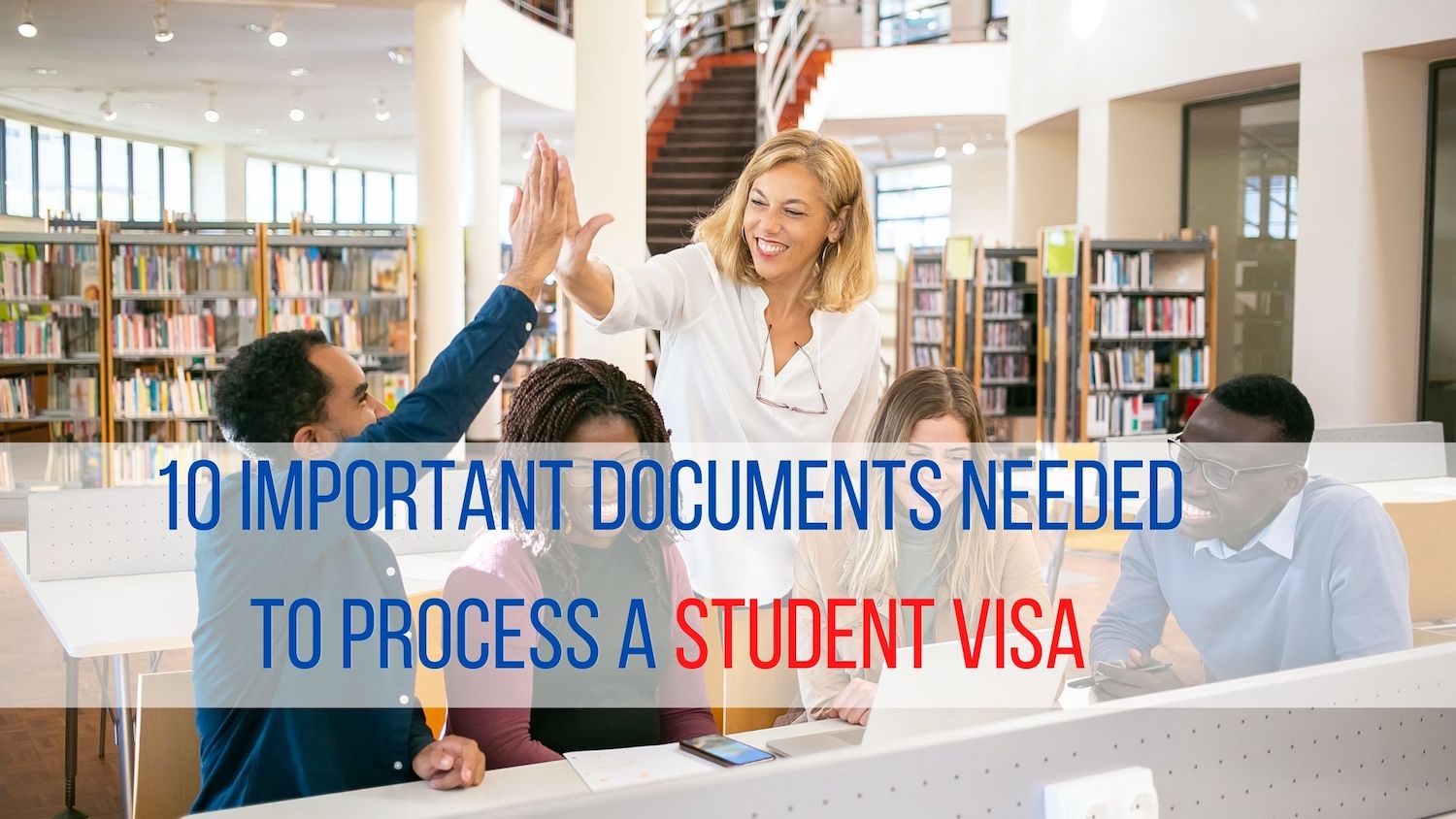Studying or working abroad can be a life-changing experience, offering new opportunities to grow, learn and expand your horizons. However, one of the most important aspects to consider when planning to study or work abroad is obtaining the necessary visa.
A visa is a legal document that allows you to enter a foreign country for a specified period and a specific purpose, such as study or work.
There are several types of visas available depending on the purpose of your trip, and understanding the different types of visas is crucial to ensure a smooth and successful application process.
In this article, we’ll explore the various types of visas needed to study and work abroad, including study visas, work visas, working holiday visas, business visas, and other types of visas that may be required.
We’ll provide an overview of each visa type, explain the requirements for obtaining them, and highlight some popular examples of each visa type.
By the end of this article, you’ll have a better understanding of the different types of visas needed to study and work abroad and be better prepared for the visa application process.
Study Visas
A study visa, also known as a student visa, is a type of visa that allows individuals to enter a foreign country to study at an accredited educational institution.
A study visa typically requires that the applicant has been accepted into a program of study at the institution and can demonstrate sufficient funds to support themselves during their stay.
The requirements for obtaining a study visa vary depending on the country and the specific visa type, but some common requirements include:
- Acceptance into an accredited educational institution
- Proof of financial support to cover tuition fees and living expenses
- Proof of health insurance coverage
- A valid passport
- A clean criminal record
Some popular examples of study visas include:
- F-1 visa for the United States: This visa allows individuals to study at an accredited college, university, or other academic institution in the US. To obtain an F-1 visa, the applicant must first be accepted into a program of study at the institution and demonstrate sufficient funds to cover tuition and living expenses.
- Tier 4 visa for the United Kingdom: This visa allows individuals to study at a UK-based institution. To obtain a Tier 4 visa, the applicant must first receive an offer of acceptance from the institution and demonstrate that they have enough funds to cover tuition and living expenses.
- Student visa for Australia: This visa allows individuals to study at an Australian educational institution for up to 5 years. To obtain a student visa for Australia, the applicant must first receive a confirmation of enrollment from the institution and provide evidence of sufficient funds to cover tuition and living expenses.
It’s important to note that the requirements for study visas can be complex and may vary depending on the country of destination.
It’s recommended that applicants carefully review the visa requirements and seek guidance from their educational institution or a reputable immigration attorney to ensure a successful visa application.
Work Visas
A work visa is a type of visa that allows individuals to enter a foreign country for employment. A work visa typically requires that the applicant has a job offer from an employer in the destination country, and the employer must provide documentation to support the visa application.
Would You Like To Apply For This Jobs/Sponsorship?
Enter Your Email Address HERE & You Will Receive a Notification About Your Application. If it shows "Subscribed" CLICK HERE to follow on Telegram for updatesThe requirements for obtaining a work visa can vary depending on the country and the specific visa type, but some common requirements include:
- A job offer from a qualifying employer in the destination country
- Proof of educational or professional qualifications
- Proof of sufficient funds to support oneself during the stay
- A valid passport
- A clean criminal record
- Compliance with health and security checks
Some popular examples of work visas include:
- H-1B visa for the United States: This visa allows employers in the US to hire foreign workers in speciality occupations, such as IT professionals or engineers. To obtain an H-1B visa, the employer must sponsor the applicant and provide documentation to support the visa application, such as labour certification and proof of the applicant’s qualifications.
- Tier 2 visa for the United Kingdom: This visa allows skilled workers to come to the UK to work for a qualified employer. To obtain a Tier 2 visa, the applicant must first receive a job offer from a UK employer with a valid Tier 2 sponsor license and meet the required skill and salary thresholds.
- Skilled Independent visa for Australia: This visa allows skilled workers to come to Australia to work and live permanently. To obtain this visa, the applicant must first complete a skills assessment and meet the minimum points threshold based on factors such as age, education, work experience, and English language proficiency.
It’s important to note that the requirements for work visas can be complex and may vary depending on the country of destination. It’s recommended that applicants carefully review the visa requirements and seek guidance from their employer or a reputable immigration attorney to ensure a successful visa application.
Working Holiday Visas
A working holiday visa is a type of visa that allows individuals to travel to a foreign country for an extended period, typically up to 12 months, to work and travel. This type of visa is often popular among young people who wish to gain work experience while exploring a new country.
The requirements for obtaining a working holiday visa can vary depending on the country and the specific visa type, but some common requirements include:
- Age restrictions: Working holiday visas are typically available to individuals between the ages of 18-30 or 18-35, depending on the country.
- Eligible countries: The applicant must be a citizen of a country that has a reciprocal agreement with the destination country.
- Sufficient funds: The applicant must demonstrate that they have enough funds to support themselves during their stay in the destination country.
- No criminal record: The applicant must provide a clean criminal record.
Compliance with health and security checks.
Some popular examples of working holiday visas include:
- Working Holiday visa for Canada: This visa allows individuals from eligible countries to work and travel in Canada for up to 12 months. To obtain this visa, the applicant must first apply online, pay a fee, and provide proof of funds, insurance, and a return ticket.
- Working Holiday visa for Australia: This visa allows individuals from eligible countries to work and travel in Australia for up to 12 months. To obtain this visa, the applicant must first apply online, pay a fee, and provide proof of funds, insurance, and a return ticket.
- Youth Mobility Scheme visa for the United Kingdom: This visa allows individuals from eligible countries to work and travel in the UK for up to 2 years. To obtain this visa, the applicant must first apply online, pay a fee, and provide proof of funds, insurance, and a return ticket.
It’s important to note that the requirements for working holiday visas can be complex and may vary depending on the country of destination. It’s recommended that applicants carefully review the visa requirements and seek guidance from a reputable immigration attorney to ensure a successful visa application.
Business Visas
A business visa is a type of visa that allows individuals to travel to a foreign country to conduct business activities, such as attending meetings, conferences, or negotiating business deals. This type of visa is typically issued to individuals who are not employed in the destination country and do not intend to engage in long-term employment.
The requirements for obtaining a business visa can vary depending on the country and the specific visa type, but some common requirements include:
- A clear purpose of the trip: The applicant must demonstrate that the purpose of the trip is for business activities and that they do not intend to engage in long-term employment in the destination country.
- Proof of financial support: The applicant must provide proof of sufficient funds to support themselves during their stay in the destination country.
- A valid passport: The passport must be valid for at least 6 months beyond the date of entry into the destination country.
- Compliance with health and security checks.
Some popular examples of business visas include:
- B-1 visa for the United States: This visa allows individuals to travel to the US for business activities, such as attending meetings, conferences, or negotiating business deals. To obtain a B-1 visa, the applicant must demonstrate the purpose of the trip, provide documentation of business activities, and have sufficient funds to support themselves during their stay.
- Business Visitor visa for the United Kingdom: This visa allows individuals to travel to the UK for business activities, such as attending meetings, conferences, or negotiating business deals. To obtain a Business Visitor visa, the applicant must provide documentation of business activities and demonstrate that they have sufficient funds to support themselves during their stay.
- Business Innovation and Investment visa for Australia: This visa allows individuals to travel to Australia to conduct business activities or invest in the country. To obtain this visa, the applicant must meet certain criteria, such as having a successful business career or demonstrating a commitment to investing in Australia.
It’s important to note that the requirements for business visas can be complex and may vary depending on the country of destination. It’s recommended that applicants carefully review the visa requirements and seek guidance from a reputable immigration attorney to ensure a successful visa application.
Other Visas
In addition to the visas mentioned above, other types of visas may be needed for studying and working abroad, such as family visas and dependent visas.
Family visas are designed for family members of individuals who are already living and working in a foreign country. These visas allow family members to join their loved ones and live with them in a foreign country.
The requirements for obtaining a family visa can vary depending on the country and the specific visa type, but some common requirements include:
- Proof of family relationship: The applicant must demonstrate their relationship with the sponsor who is already living and working in the destination country.
- Proof of financial support: The applicant must provide evidence that they will be financially supported during their stay in the destination country.
- A valid passport: The passport must be valid for at least 6 months beyond the date of entry into the destination country.
- Compliance with health and security checks.
Some popular examples of family visas include:
- F-2 visa for the United States: This visa allows the family members of F-1 visa holders to accompany or join them in the US. To obtain an F-2 visa, the applicant must demonstrate their relationship with the F-1 visa holder and provide evidence of financial support.
- Family visa for the United Kingdom: This visa allows family members of UK citizens or residents to join them in the UK. To obtain a Family visa, the applicant must demonstrate their relationship with the UK citizen or resident and provide evidence of financial support.
- Partner visa for Australia: This visa allows the partner of an Australian citizen or permanent resident to live and work in Australia. To obtain a Partner visa, the applicant must demonstrate their relationship with the Australian citizen or permanent resident and provide evidence of financial support.
Dependent visas are similar to family visas but are designed for individuals who are dependents of individuals living and working in a foreign country. These visas allow dependents to join their loved ones and live with them in a foreign country.
The requirements for obtaining a dependent visa can vary depending on the country and the specific visa type, but some common requirements include:
- Proof of dependency: The applicant must demonstrate that they are dependent on the sponsor who is already living and working in the destination country.
- Proof of financial support: The applicant must provide evidence that they will be financially supported during their stay in the destination country.
- A valid passport: The passport must be valid for at least 6 months beyond the date of entry into the destination country.
- Compliance with health and security checks.
Some popular examples of dependent visas include:
- F-2 visa for the United States: This visa allows the dependent children of F-1 visa holders to accompany or join them in the US. To obtain an F-2 visa, the applicant must demonstrate their relationship with the F-1 visa holder and provide evidence of financial support.
- Dependent visa for the United Kingdom: This visa allows dependents of UK citizens or residents to join them in the UK. To obtain a Dependent visa, the applicant must demonstrate their dependency on the UK citizen or resident and provide evidence of financial support.
- Dependent Child visa for Australia: This visa allows the dependent child of an Australian citizen or permanent resident to live and study in Australia. To obtain a Dependent Child visa, the applicant must demonstrate their dependency on the Australian citizen or permanent resident and provide evidence of financial support.
Conclusion
There are various types of visas needed for studying and working abroad, including study visas, work visas, working holiday visas, and business visas. Additionally, family visas and dependent visas may also be required.
It is crucial to research the visa requirements before applying as the application process can be complex and time-consuming. Understanding the specific visa requirements can help applicants avoid any unnecessary delays or denials.
There are various resources available for individuals who want to learn more about visa requirements, such as government immigration websites, educational institutions, and immigration lawyers. These resources can provide valuable information on the visa application process, requirements, and eligibility criteria.
Overall, obtaining the right visa is essential for individuals who want to study or work abroad. With proper research and planning, applicants can increase their chances of obtaining the right visa and achieving their goals of studying or working abroad.







Thanking you for your valuable reply Sir 🙏🏻🇮🇳,. I need a job opportunity how can I apply, and which visa I can make from India 🇮🇳 to work in Canada please suggest me 🙏 Thanks
I am very interested in this opportunity please, I am cl***room teacher in my country.